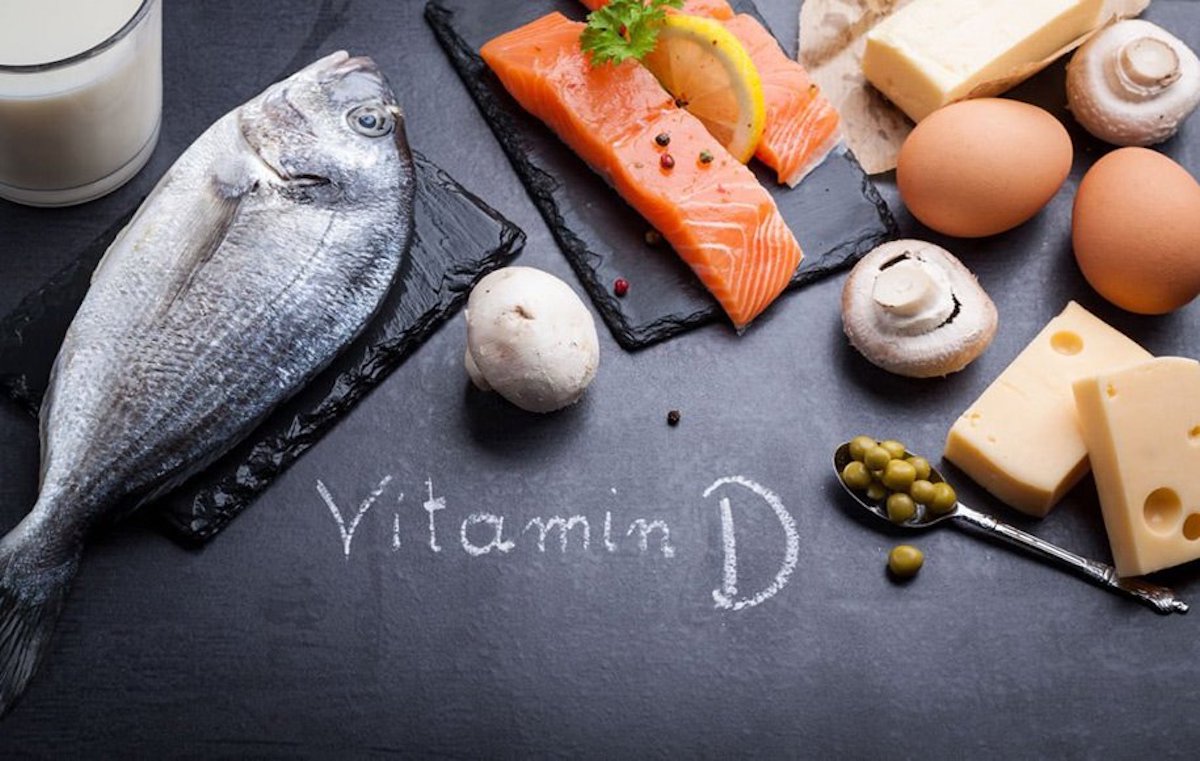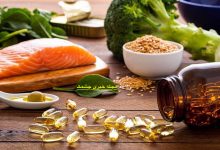Easy weight loss with these 6 natural vitamins

There is no magic pill for weight loss in the world of nutrition. But not getting enough of the important vitamins and minerals that help with weight control can make it very difficult for you to lose weight. Although no single mineral or vitamin can cause weight loss alone, following a balanced diet and intake of vital nutrients will support your metabolism (fuel) and facilitate the weight loss process. If you want to know which mineral and vitamin is suitable for weight loss, follow today’s fitness and nutrition article to the end.
What is the best mineral and vitamin for weight loss?
In general, it’s best to get the vitamins and minerals you need from food sources. But if you suspect that you may be having trouble getting some nutrients or that you are deficient in them, consult your doctor about taking supplements.
The following vitamins and minerals affect the body’s metabolism, and their deficiency can slow down weight loss:
1. B Group Vitamins
B vitamins are a group of water-soluble vitamins that play an important role in the body’s metabolism and conversion of food into energy. These vitamins include:
- thiamine (vitamin B1)
- Riboflavin (vitamin B2)
- Niacin (Vitamin B3)
- pantothenic acid (vitamin B5)
- Vitamin B6
- Biotin (vitamin B7)
- Folate (vitamin B9)
- Vitamin B12
Research on the importance of getting vitamins for weight loss has shown that B vitamins are useful for metabolism and help the body process the nutrients in food. Therefore, their insufficient intake can make the weight loss process face many challenges.
Easy weight loss, since B group vitamins are water soluble, the body does not store these vitamins and excretes excess amounts through urine. As a result, you should get B vitamins every day. Foods rich in vitamin B include:
- Fish like salmon
- Whole grains such as brown rice
- Legumes such as lentils and beans
- Vegetables such as spinach, asparagus, broccoli and potatoes
- Fruits such as oranges and avocados
- Soy products such as tofu and soy milk
Vitamin B12 is only found in animal foods and fortified foods. For this reason, vegetarians are more prone to its deficiency than others.
2. Vitamin D
Vitamin D is an essential nutrient that helps keep bones strong and supports the function of the immune system, muscles, and brain cells. On the other hand, it seems that this vitamin is also useful for weight loss. For example, one study found that vitamin D deficiency is more common in obese people.
Although the relationship between vitamin D and obesity is not completely clear, scientists theorize that vitamin D may play a role in regulating body fat mass, and for this reason, its deficiency can lead to weight gain and obesity.
In a study conducted on a group of overweight and obese women, researchers investigated the effect of vitamin D supplementation and found that 6 weeks of vitamin D supplementation could significantly reduce weight, body mass index (BMI), waist circumference and reduce hip circumference. However, more research is needed to better understand the relationship of this nutrient to weight loss.
Vitamin D is an important part of a balanced diet. According to current guidelines, adults should get 15 micrograms or 600 international units (IU) of vitamin D daily. After the age of 70, the need for this vitamin increases and reaches 20 micrograms or 800 international units per day.
Easy weight loss, since excessive consumption of vitamin D leads to side effects, its daily intake should not exceed 100 micrograms or 4000 international units. According to research, vitamin D supplements with a dose of 5000 to 50000 international units are safe for people with vitamin D deficiency.

It is difficult to get enough vitamin D through diet, however, the following foods can be mentioned as sources of this vitamin:
- Fish like salmon and sardines
- Egg yolks
- Foods enriched with vitamin D
Your body can get all the vitamin D it needs from sunlight. However, most people today spend most of the day indoors or live in areas where the sun doesn’t always shine. In addition, excessive exposure to sunlight increases the risk of skin cancer. If you want to use sunlight for vitamin D, don’t stay in the sun for more than 15 to 20 minutes.
3. Calcium
Calcium is an important mineral that strengthens bones and supports the function of the heart, muscles and nerves. Vitamin D helps your body absorb calcium. Some research has shown that these two essential nutrients together can affect the weight loss process. For example, in one study in which participants followed a low-calorie diet, obese people who took calcium and vitamin D lost more fat compared to a group that did not receive these supplements.
Easy Weight Loss As always, it’s best to get the calcium you need through diet before turning to pills. Men aged 19 to 70 and men over 70 need 1,000 and 1,200 mg of calcium daily, respectively. Women under the age of 50 should get 1000 mg of calcium every day, but after the age of 50, the need for this nutrient increases and reaches 1200 mg. Daily intake of calcium should not exceed 2000 to 2500 mg per day.
Dairy products such as milk, yogurt and cheese are the best sources of calcium. This important nutrient is also found in the following foods:
- Fish such as sardines and salmon
- beans
- Grains
- Leafy vegetables
- Soy products
4. Vitamin C
When it comes to taking vitamins for weight loss, vitamin C should also be mentioned. Vitamin C is an antioxidant that helps the body produce collagen and plays a role in protecting cells from free radicals. In one study, it was observed that vitamin C supplementation was associated with weight loss and reduced waist size. It can also deal with metabolic problems such as high blood pressure, high cholesterol and high blood sugar.
Adult men and women should get 90 and 75 mg of vitamin C during the day, respectively. The following foods are some of the best sources of vitamin C that you should include in your diet:
- Fruits such as kiwi, strawberries and oranges
- Vegetables such as bell peppers and broccoli
- sweet potato
The recommended upper limit for vitamin C intake is 2000 mg per day. Excessive consumption of this vitamin may cause symptoms such as diarrhea, nausea and vomiting.
5. Magnesium
Easy weight loss, magnesium is a mineral that plays a role in energy production, supports muscle and nerve function, regulates blood pressure, and helps control blood sugar levels. Magnesium’s role in energy production makes it one of the best nutrients for weight loss and boosting metabolism. Some studies have shown that increased magnesium intake is associated with lower BMI and waist circumference. However, more research is needed in this area.
Current guidelines recommend that adult men and women get 400-420 and 320-310 mg of magnesium per day, respectively. The intake of this nutrient should not exceed 350 mg per day. Good sources of magnesium include:
- Leafy greens like spinach
- Avocado
- beans
- Zucchini
- potato
- Salmon fish
- Edible nuts (do not overdo the consumption of nuts, because they are high in calories.)

6. Iron
Iron is another mineral that can help with weight loss, albeit indirectly. There is a protein called hemoglobin in red blood cells, which has iron in its structure. The iron in hemoglobin delivers oxygen to the muscles so that these organs can perform at their best. In addition, iron supports the growth of muscles and connective tissue.
Easy weight loss, iron deficiency causes weakness and decrease in body energy level and impairs muscle function. As a result, it becomes harder to stick to healthy habits that help you lose weight (like regular exercise).
You can get this essential mineral through food or by taking a supplement if recommended by your doctor. According to current guidelines, men need 8 mg of iron per day. Women aged 19 to 50 should get 18 milligrams of iron per day, which decreases to 8 milligrams per day after the age of 50. The daily intake of iron should not exceed 45 mg. The following foods can be mentioned as the best sources of iron:
- Beef
- Whole grains such as quinoa and oats
- Legumes such as lentils and beans
- Dried fruits such as apricots and plums
- Vegetables like spinach
Iron found in animal foods is better absorbed than iron found in plant foods. Foods rich in vitamin C can increase the absorption of iron obtained from plant foods in the intestine.
Of course with these step you can loss weight and also be healthy, but if you also need supplements for this purpose, you can visit on of the Complete Nutrition online store.






